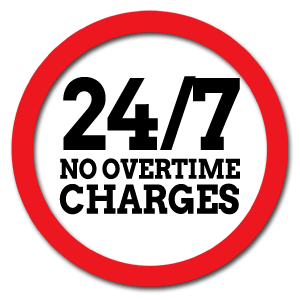As the summer heat fades and the cool air of winter sets in, residents of Navarre, Florida, often find themselves adjusting to the seasonal shift in climate. While winters here may not be as harsh as in other parts of the country, a well-insulated home remains a crucial component for comfort and energy efficiency. In this blog post, we’ll explore why insulation is key to maintaining a cozy atmosphere during the cooler months, the benefits it offers, and how you can ensure your home is up to par.
Understanding Navarre’s Climate
Navarre, FL, enjoys a warm, humid subtropical climate, with mild winters and hot, often muggy summers. Winter temperatures in Navarre typically stay in the mid-50s, but occasional cold fronts can bring brief cool spells with lows in the 40s. Summers, on the other hand, can be sweltering, with highs regularly reaching into the 90s, accompanied by high humidity levels. The combination of heat and humidity makes insulation essential for maintaining comfort year-round.
Good insulation helps keep the heat out during the summer and traps cool air inside, making your home more energy-efficient and comfortable. It also plays a crucial role in your home’s HVAC system, ensuring that the cooling system doesn’t have to work harder than necessary. So, why is insulation so important in Navarre, and how does it contribute to the efficiency and comfort of your home?
The Role of Insulation
What is Insulation?
Insulation is a material used in building construction to reduce the transfer of heat between different areas. It is installed in walls, attics, floors, and basements to create a barrier against temperature fluctuations. Common insulation materials include fiberglass, foam board, cellulose, and spray foam. Each type has its unique benefits and applications, but all aim to improve energy efficiency.
How Insulation Works
Insulation works by slowing down the movement of heat. In winter, when your heating system is working to keep your home warm, well-insulated areas will retain that heat for a longer time. Conversely, in the summer, insulation prevents the heat outside from seeping into your cool home. This means your HVAC system doesn’t have to work as hard, leading to lower energy bills and less wear and tear on your equipment.
The Importance of Insulation in Winter
Comfort in Cold Weather
With average winter temperatures dipping into the 30s, having a well-insulated home is essential for comfort. A properly insulated home will maintain a consistent indoor temperature, ensuring that you and your family stay warm without fluctuations. This is particularly important for areas where you spend a lot of time, such as living rooms, bedrooms, and kitchens.
Energy Efficiency
One of the most significant advantages of insulation is its impact on energy efficiency. According to the U.S. Department of Energy, you can save an average of 15% on heating and cooling costs by properly insulating your home. This means that a well-insulated home not only keeps you comfortable but also helps you save money on your utility bills. In Navarre, where energy costs can be high, those savings can add up significantly over time.
Environmental Benefits
Reducing energy consumption through insulation also has environmental benefits. By using less energy to heat your home, you’re decreasing your carbon footprint. This aligns with the growing concern for environmental sustainability and responsible living. Choosing energy-efficient solutions like insulation helps protect our planet for future generations.
The Different Types of Insulation
Fiberglass Insulation
Fiberglass insulation is one of the most common types used in homes. It’s made from tiny glass fibers and comes in batts or rolls, making it easy to install in walls and attics. It offers a good balance of cost and performance, with an R-value (a measure of thermal resistance) ranging from R-2.9 to R-3.8 per inch.
Foam Board Insulation
Foam board insulation provides a high insulating value for relatively little thickness. It’s often used in foundation walls, basement walls, and exterior walls. Its R-value ranges from R-4 to R-6 per inch, making it a strong contender for energy efficiency.
Cellulose Insulation
Made from recycled paper products, cellulose insulation is an eco-friendly option. It’s treated with fire retardants and is typically blown into wall cavities or attics. Cellulose insulation has an R-value of around R-3.2 to R-3.8 per inch.
Spray Foam Insulation
Spray foam insulation expands on application, filling gaps and providing an air-tight seal. While it’s one of the more expensive options, it has a high R-value ranging from R-6.5 to R-7 per inch. Spray foam is particularly effective for hard-to-reach areas and can significantly enhance your home’s energy efficiency.
Assessing Your Home’s Insulation
Signs of Poor Insulation
How can you tell if your home needs better insulation? Here are some common signs:
- Drafts: If you feel cold drafts coming from windows or doors, it may indicate poor insulation.
- Inconsistent Temperatures: If some rooms are colder than others, your insulation may not be sufficient.
- High Energy Bills: A sudden spike in energy costs can signal that your heating system is working overtime due to inadequate insulation.
- Ice Dams: In homes with attics, ice dams can form on roofs when heat escapes, melting snow that refreezes at the eaves.
Professional Insulation Evaluation
If you suspect your home is not adequately insulated, consider hiring a professional HVAC service to conduct an insulation evaluation. They can identify weak spots in your home and recommend the best insulation materials and methods for your specific needs.
Maintaining Your Insulation
Regular Inspections
It’s important to check your insulation regularly, especially after severe weather conditions. Look for any signs of wear and tear, such as moisture damage or pests. Regular inspections help ensure your insulation remains effective and can prevent costly repairs down the line.
Upgrading Insulation
If your home is older, it may have outdated insulation that doesn’t meet current standards. Upgrading to modern insulation can provide better energy efficiency and comfort. Investing in high-quality insulation can yield significant returns in energy savings and home comfort.
Enhancing Your HVAC System
The HVAC Connection
Insulation works hand-in-hand with your HVAC system. If your home is well-insulated, your heating and cooling systems won’t have to work as hard, extending their lifespan and reducing maintenance costs. A well-insulated home can help prevent issues such as short cycling, where your system turns on and off too frequently.
Importance of Professional Installation
Whether you’re upgrading insulation or installing a new HVAC system, professional installation is key. Professionals can ensure that insulation is applied correctly and that your HVAC system is properly sized and configured for your home. This can prevent future issues and provide peace of mind.
For HVAC Services in Navarre, FL, Contact Family Heating & Air Today
In Navarre, FL, a well-insulated home is not just a luxury; it’s a necessity for comfort during the winter months. By understanding the importance of insulation and its role in your home’s HVAC system, you can make informed decisions that benefit both your comfort and your wallet.
If you’re ready to enhance your home’s insulation or need assistance with your HVAC system, look no further than Family Heating & Air. Our team of experts is dedicated to providing quality service and solutions tailored to your needs. We understand the unique climate challenges of Navarre and are here to help you stay comfortable year-round. Contact us today to schedule an evaluation or consultation, and let us help you create the cozy home you deserve!








